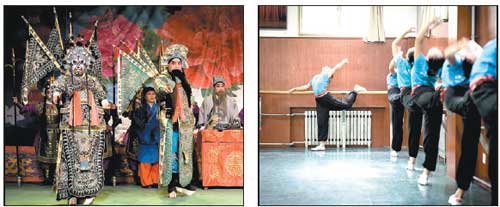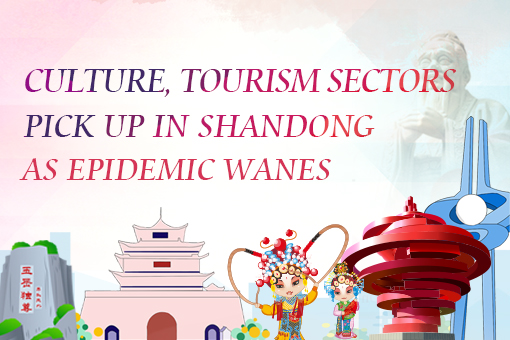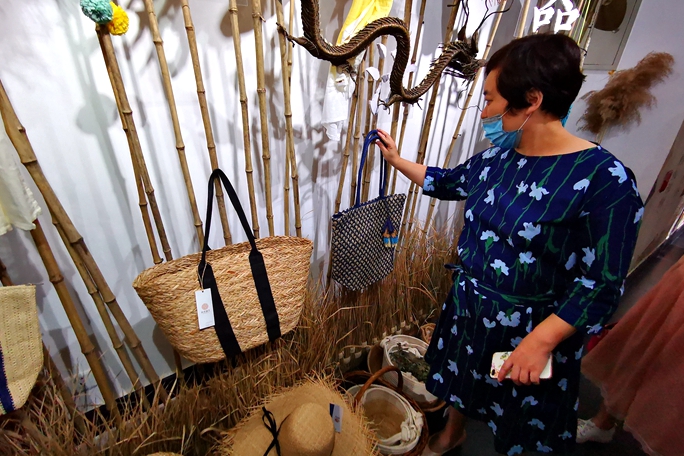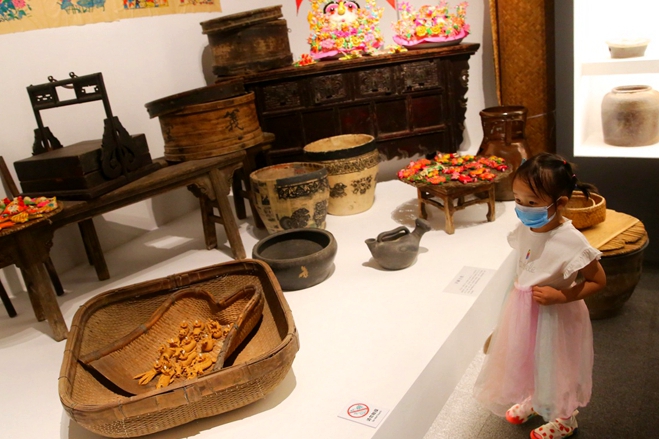Traditional art form gets new lease of life
Training youth
On July 11, the State Council, China's cabinet, issued a directive to support and develop traditional Chinese folk operas.
"We give an allowance to troupe members to guarantee an actor's basic livelihood. To popularize folk operas, we also offer free performances in cities and villages of Shandong," says Wang.
"While maintaining the tradition of classic folk opera, new works, which revolve around contemporary stories and costumes, are also needed," Wang adds.
A local surnamed Zheng says that traditional Chinese folk opera troupes face many challenges.
For example, the audiences are mostly elderly people and the troupes still depend on government subsidies to survive.
He also adds that one of the most important things to ensure that the art form survives is a steady stream of trained young actors.
"Chinese folk operas are highly demanding. Actors need to have training from young. But today's young are easily distracted by other options and only a few can devote themselves to the art fully," Zheng says.
Ma Rui, a 15-year-old student of Shandong Art and Culture School in Jinan, kicks her legs more than 400 times every day.
The student of Shandong bangzi, a 300-year-old folk opera form, which is known for its passionate singing, was introduced to the art form by her father, who is also a Shandong bangzi performer and owns an art troupe.
"I have toured with my father since childhood and my father's troupe is famous in my hometown. It's my dream to become a Shandong bangzi actress," says Ma.
On campus
To generate interest in the younger generation, the local government has been organizing a series of activities called "Folk Arts in Campus" in primary and middle schools of the province since 2009.
An Shigang, principal of Jinan's Weishilu Primary School, says: "We invite professional Peking Opera actors to give our students some basic knowledge about the art form, such as singing and physical actions. During the past five years, the Peking Opera class has become one of the most popular classes among our students."
The principal adds that students are encouraged to further their Peking Opera studies with classes offered by the Jinan Peking Opera Troupe during weekends.
"There is a need to revive traditional Chinese folk operas because they showcase our culture. Stories told in folk operas are basically interpretations of traditional Chinese values and philosophies, such as loyalty, bravery and the virtue of respect. Those are the roots of our spiritual world," the principal says.
chennan@chinadaily.com.cn
 |
|
Left: Performers from Jinan Peking Opera Troupe stage a show in Heze, Shandong province. Right: Local opera performers in the same city during a routine practice.Photos By Bi Xiaoyang / For China Daily |

 Shandong Culture and Tourism Consumption Season
Shandong Culture and Tourism Consumption Season Culture, tourism sectors pick up in Shandong as epidemic wanes
Culture, tourism sectors pick up in Shandong as epidemic wanes

